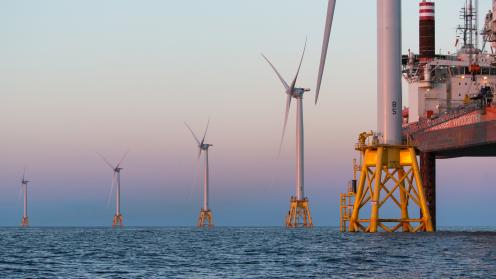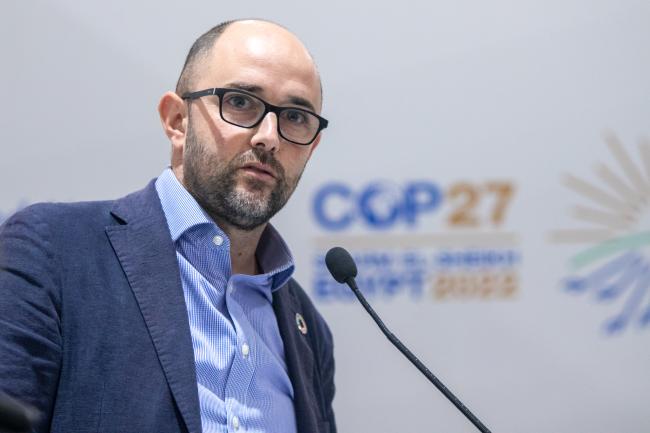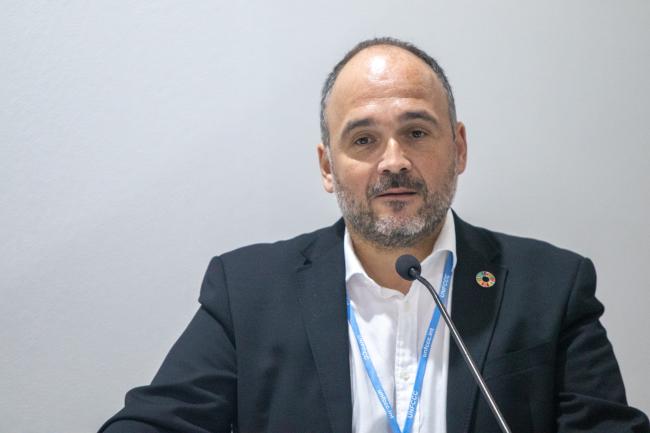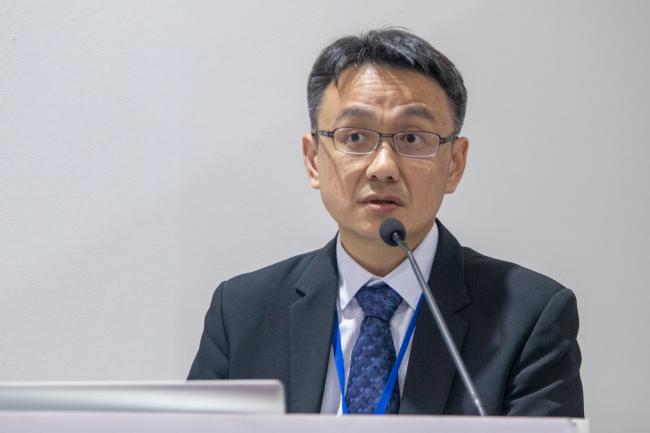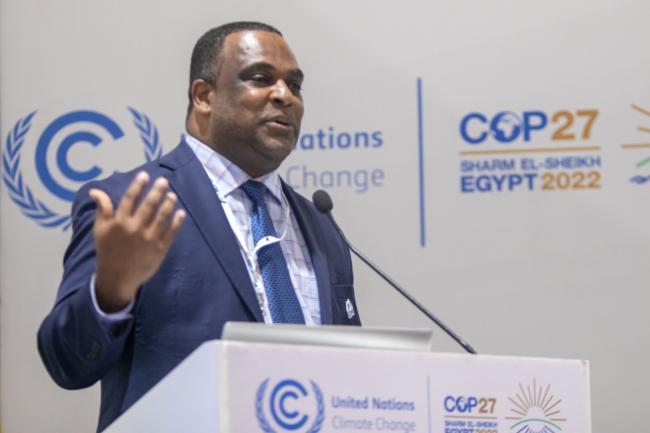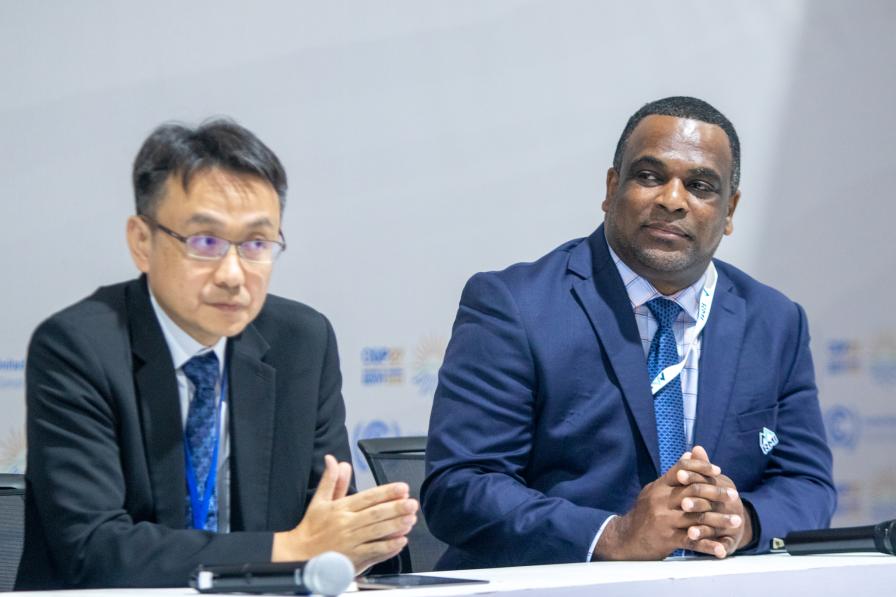About
This COP27 side event highlighted energy transition solutions tailored to insular environments, and featured exchanges of views and best practices from actors from across Asia, Europe, and the Caribbean.
Innovative energy infrastructure, responsive governance, and regulatory frameworks are key factors for islands to achieve clean, sustainable development. With a focus on energy storage systems, this side event highlighted energy transition solutions tailored to insular environments, and featured exchanges of views and best practices from actors from across Asia, Europe, and the Caribbean.
Yvonne Chan, Delta Electronics Foundation, moderated the event. Pep Malagrava, Balearic Islands Government, explained the Balearic Islands’ efforts to move towards renewable energies and energy sovereignty through, among others, the adoption of the Balearic Law on Climate Change and Energy Transition in 2019. He emphasized policies and institutions in place that seek to maximize the engagement of local populations in carrying out this effort. Among others, he pointed to a Balearic public company that seeks to boost the use of renewable energy by urban populations. Further, he said renewable energy projects in the region must now be available for local populations to invest in, with sums as small as EUR 500. This promotes community engagement in the energy transition, which is essential for such projects to be inclusive, he concluded.
José Antonio Valbuena Alonso, Climate Change and Land Planning, Canary Islands, similarly described efforts to promote energy autonomy, noting an energy transition plan based on strategies such as the development of energy storage, the use of electric vehicles, and the production of green hydrogen. This plan also prioritizes the capitalization of geothermal energy, which is abundantly produced from the Islands’ volcanic activity.
He noted the region’s year-long mild weather aids with the transition towards energy sovereignty as energy demand is 30% lower than in continental Spain. Lastly, he described efforts for the transition to be inclusive, noting its potential to generate over 400 jobs per year and communication efforts to reach local populations.
Wim Chang, CEO, Delta Electronics Foundation, said non-resilient traditional energy systems contribute to making islands vulnerable to extreme weather and walked participants through energy storage solutions deployed in the islands of Kinmen and Orchid, Taiwan. These stabilized grids for over 30,000 households, he continued, and successfully prevented 61 instances of power outages in Kinmen. He then underlined the need for communication with local populations, as these may be suspicious of and resist new installations. Thus, he explained, Delta worked with local foundations to educate local populations on the importance of energy storage systems for energy resilience.
David Gumbs, RMI Global South Program, described the high vulnerability of the Caribbean region to extreme weather events, noting that five to ten years of development can be wiped out with a single Category 1 hurricane. He pointed to examples such as Hurricanes Fiona and Ian which, he said, underscored the implications of a brittle energy grid on all segments of society. Indeed, he continued, it is essential to consider how the transition towards a low-carbon society impacts the lives of people, which includes considering the cost of energy. He highlighted, among other things: a project in the Bahamas that uses battery-powered energy storage systems to provide low and resilient energy prices; and the Caribbean Climate Smart Fund, launched a day earlier, which seeks to attract investment in similar small-scale projects.
In response to a question from Chan on the main challenge faced in developing or implementing resilient and sustainable energy solutions for islands, panelists noted, among others: ensuring local populations see the energy transition as “theirs” as opposed to something imposed on them; creating capacity to develop and sustain energy solutions at the local level; and “bringing finance to the table.” In answer to another question from Chan on key factors to scale up solutions on islands, panelists called for better regulatory frameworks at the local, national, and regional levels. Questions from the audience, in turn, focused on better understanding the mechanisms enabling local populations to invest in renewable energy projects in the Balearic Islands.
In conclusion, Gumbs underscored the impact of energy resilience on other areas of life such as health and education, noting that “each country, each approach has to be a little different because you are considering a different set of people.” He hoped participants would walk away focused on the human component.
Organizer: Delta Electronics Foundation
Contact: Yi Chieh Yvonne Chan I Yvonne.Chan@Delta-foundation.org.tw
For more information: https://www.delta-foundation.org.tw/en
To receive free coverage of global environmental events delivered to your inbox, subscribe to the ENB Update newsletter.
All ENB photos are free to use with attribution. For photos from this side event, please use: Photo by IISD/ENB | Matthew TenBruggencate.
